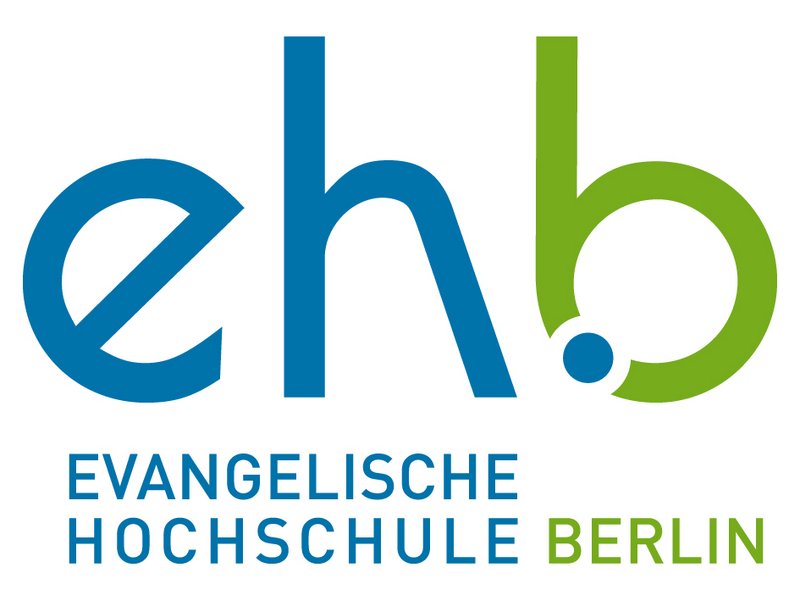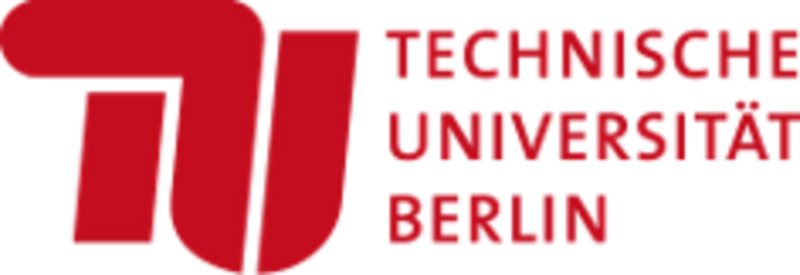Open-Access-Tage 2023: Visionen gestalten
Vor 20 Jahren ist die Berliner Erklärung über den offenen Zugang zu wissenschaftlichem Wissen erschienen. Seitdem ist Open Access immer mehr zu einem integralen Bestandteil wissenschaftlicher Praxis und forschungsunterstützender Arbeit geworden. Damit einher ging die Entstehung neuer Berufsbilder, Technologien, Infrastrukturen und Geschäftsfelder. Der Prozess der Transformation des wissenschaftlichen Publizierens ist aber noch lange nicht abgeschlossen und die Vision eines besseren, effizienteren, gerechteren und inklusiven wissenschaftlichen Publikationswesens immer noch aktuell.
Das Programmkomitee der Open-Access-Tage 2023 lädt herzlich zur Einreichung von Beiträgen rund um das Thema Visionen gestalten ein.
Einreichungen zu allen Themen rund um Open Access sind willkommen. Wir möchten im Besonderen Einreichungen zu folgenden Themen anregen, die aktuell für die Gestaltung der Zukunft von Open Access von großer Relevanz sind:
Organisationsformen und -entwicklungen in den Wissenschafts- und Kulturerbeeinrichtungen:
Während die Professionalisierung der Dienstleistungen und Infrastrukturen zu Open Access weit fortgeschritten ist, spiegeln die Organisationsstrukturen diesen Wandel häufig noch nicht wider. Im Organisationsalltag werden Open-Access- bzw. Open-Science-Teams häufig als eine Ergänzung zur “eigentlichen” Bibliothek oder anderen forschungsunterstützenden Abteilungen geführt. Mit dem Informationsbudget wird eine Verschmelzung von Open Access und traditionellem Erwerbungsbudget der Bibliotheken angestrebt, doch die Auswirkungen auf die Struktur der Institutionen sind noch nicht ausgemacht. Hier stellen sich Fragen wie: Welche organisatorischen Veränderungen braucht es, um Open Access zielführend zu unterstützen und weiterzuentwickeln? Welche Strukturen sollen oder können geschaffen werden, um das Publizieren im Open Access in den Institutionen fest zu etablieren? Wie wirkt sich die Einführung des Informationsbudgets auf die Institutionen aus? Wie transformiert Open Access die Abläufe in Bibliotheken und forschungsunterstützenden Abteilungen? Was bedeutet es in organisatorischer Hinsicht, wenn öffentliche Einrichtungen zunehmend selbst als Infrastrukturanbieterinnen agieren?
Gestaltungspotential von Bibliotheken am Publikationsmarkt:
Bibliotheken gehören hier zu den wichtigsten Akteurinnen. Mit ihrer Sammlungs- und Bestandspolitik gestalten sie den Markt ebenso mit, wie sie ihm ausgeliefert sind. Einzelne Bibliotheken legen etwa die Förderkriterien für OA-Fonds fest und nationale Vertragskonsortien wie beispielsweise DEAL normalisieren die Abwicklung von Verrechnungsmodellen für bestimmte Verlage. Dabei werden aber auch – bewusst oder unbewusst – andere Modelle ausgeschlossen oder für Wissenschaftler*innen weniger attraktiv gemacht. Hier stellen sich zum Beispiel folgende Fragen: Wie können Bibliotheken ihre Gestaltungsmöglichkeiten und die Implikationen ihres Handelns deutlich machen? Wie wirken sich die Entscheidungen und das Handeln der Bibliotheken auf Entwicklungen des Publikationsmarkts aus? Wie können Entscheidungsprozesse sowohl die lokalen Bedürfnisse (z.B. Wissenschaftler*innen zu unterstützen) als auch die globaleren Einflussmöglichkeiten etwa im Umgang mit Verlagsangeboten berücksichtigen?
Diversität der Publikationsformate und -workflows:
Die Berliner Erklärung zeichnet mit dem Internet bereits die Möglichkeiten einer interaktiven Repräsentation des menschlichen Wissens vor. Aktuell sind aber immer noch statische Dokumente verbreitet, welche sich meist an Druckerzeugnissen der letzen Jahrhunderte orientieren. Die technischen Möglichkeiten für darüber hinausgehende Vernetzungs- und Darstellungsmöglichkeiten sind heute noch viel mehr denn damals gegeben. In der Praxis sind die vielfältigen Optionen bislang allerdings wenig sichtbar. Insbesondere vor dem Hintergrund der unterschiedlichen Publikationskulturen in den Fachdisziplinen stellen sich folgende Fragen: Wo finden multimediale Publikationsformate oder enhanced publications Anwendung? Welche Interaktionen ermöglichen experimentelle Publikationsformate?
Nach der Idee von Open Science sind neben dem Text auch die Forschungsdaten offen zugänglich und der Forschungsprozess wird transparent dokumentiert. Welche Anforderungen ergeben sich daraus an offene Publikationsinfrastrukturen wie Repositorien? Welche Veränderungen im Publikationsworkflow resultieren z.B. aus der Prä-Registrierung von Studien, aus Registered Reports oder Open-Peer-Review? Welche rechtlichen Fragen erwachsen aus diesen vielfältigen Formaten? Welche technischen Entwicklungen, z.B. im Bereich Metadaten, sind zukunftsweisend? Was bedeuten diese Veränderungen für die unterstützenden Tätigkeiten rund um Open Access an Wissenschaftsinstitutionen und Kulturerbeeinrichtungen sowie für Finanzierungsmodelle?
Über die Konferenz
Die Open-Access-Tage sind die zentrale jährliche Konferenz zum Thema Open Access im deutschsprachigen Raum. Sie richtet sich an alle, die sich intensiv mit den Möglichkeiten, Bedingungen und Perspektiven des wissenschaftlichen Publizierens befassen. Dazu gehören Wissenschaftler*innen sowie Mitarbeiter*innen von Bibliotheken und anderen Einrichtungen der Wissenschaftsinfrastruktur ebenso wie Mitglieder der Wissenschaftsadministration und Verlage.
Die Open-Access-Tage 2023 werden gemeinsam von Berliner Universitäten und Hochschulen vom 27. bis 29. September 2023 an der Freien Universität Berlin in Berlin-Dahlem veranstaltet. Das Ortskomitee wird vom Open-Access-Büro Berlin koordiniert.
Es können Beiträge für folgende Formate eingereicht werden: Vorträge, Workshops, Poster und Tool-Marktplatz.
Die Tagungssprache der Open-Access-Tage 2023 ist Deutsch. Beiträge in englischer Sprache sind ebenfalls willkommen.
Vorträge
Es können Vorträge mit einer maximalen Länge von 15 Minuten eingereicht werden. Das Programmkomitee bildet aus den ausgewählten Einreichungen thematisch abgestimmte, moderierte Sessions. Jede Session dauert 90 Minuten und beinhaltet höchstens drei Vorträge, damit es ausreichend Zeit für Diskussionen gibt. Reichen Sie bitte ein Abstract mit maximal 300 Wörtern ein und fügen Sie kurze biografische Angaben zu den beteiligten Personen hinzu (maximal ⅓ Seite). Wenn Ihre Einreichung in einem Zusammenhang mit anderen steht bzw. Sie die Behandlung in einer gemeinsamen Session wünschen, vermerken Sie dies bitte bei der Einreichung.
Wir streben an, möglichst viele Vorträge aufzuzeichnen und nach der Konferenz über das TIB AV-Portalonline zugänglich zu machen sowie alle Präsentationen auf Zenodo mit einer offenen Lizenz zu veröffentlichen (bevorzugt unter der Creative Commons Attribution 4.0 International (CC BY 4.0)).
Workshops
Es können praxisorientierte Workshops eingereicht werden. Diese widmen sich einem spezifischen Thema und dauern 90 Minuten. Im Mittelpunkt der Workshops steht die gemeinsame, strukturierte Erarbeitung von Ergebnissen.
Reichen Sie bitte ein Abstract mit maximal 300 Wörtern ein, welches das Thema und den Bezug zum Motto der Open-Access-Tage beschreibt. Geben Sie darüber hinaus folgende Informationen an:
- Was ist die anvisierte Zielgruppe?
- Was sind die Lernziele für Teilnehmer*innen bzw. welche Ergebnisse wünschen Sie sich?
- Wie ist der Workshop strukturiert?
- Welche Methoden sollen zum Einsatz kommen? Und welche Tools möchten Sie gerne einsetzen?
- Wie hoch ist die maximale Teilnehmer*innenzahl?
Fügen Sie kurze biografische Angaben zu den beteiligten Personen hinzu. Berücksichtigen Sie, dass Workshops keine Vortragspanels sind und eine interaktive Gestaltung vorausgesetzt wird.
Poster
Poster sind vollwertige Konferenzbeiträge und können aktuelle Forschungsergebnisse oder Projekte zu Open Access präsentieren. Alle ausgewählten Poster werden während der Konferenz in einer Poster-Session vorgestellt. Poster-Einreichende sollten während der Konferenz anwesend sein, um den Tagungsteilnehmer*innen Gelegenheit zur Diskussion zu geben.
Alle fristgerecht eingereichten Beiträge werden durch die Posterjury des Programmkomitees begutachtet. Die Einreichungen unterliegen einem Auswahlverfahren. Neben inhaltlichen Aspekten wird auch die Umsetzung des Posters berücksichtigt (klare Struktur, Aussagekraft, Lesbarkeit respektive Verständlichkeit, Visualisierung, innovative Gestaltung). Bei den eingereichten Postern soll es sich um die finalen Versionen handeln. Skizzen oder Konzepte für Darstellungen können nicht berücksichtigt werden.
Im Falle der Annahme wird das Poster mit der Lizenz Creative Commons Attribution 4.0 International (CC BY 4.0) auf Zenodo publiziert. Bitte geben Sie die Lizenz entsprechend der Vorgaben von Creative Commons auf dem Poster an (korrekte Bezeichnung und Link zum Lizenztext). Wir bitten Sie, ggf. nötige Rechteklärungen vorab durchzuführen. Geben Sie auf dem Poster nach Möglichkeit auch die ORCID aller beteiligten Einreichenden an.
Da die Poster auch gedruckt mitgebracht werden sollen, empfiehlt sich das Anlegen als A0, üblich ist das Hochformat. Orientierung bieten die Poster aus den Vorjahren.
Bitte laden Sie Ihr fertiges Poster (keine Abstracts) als PDF-Datei bei Conftool ein.
Tool-Marktplatz
Der Tool-Marktplatz ist eine Demo-Session für nicht-kommerzielle Software-Anwendungen (bevorzugt Open Source) mit einem Bezug zu Open Access. Tools sollen von den Einreichenden kurz per Live-Demos vorgestellt werden, um sich dann mit den Teilnehmenden zu Anwendungsmöglichkeiten und Feedback auszutauschen.
Für Einreichungen zur Session Tool-Marktplatz sollen folgende Angaben gemacht werden:
- Beschreibung des Tools
- nach Möglichkeit Link zur lauffähigen Version der Anwendung
- Angaben zur Softwarelizenz
- Angaben zum Verhältnis der Einreichenden zur vorgestellten Software
- Angaben zu besonderen technischen Anforderungen für die Präsentation
Reichen Sie bitte ein Abstract mit maximal 300 Wörtern ein. Das Abstract muss einen Link auf das Tool und/oder das mit diesem verbundene Projekt enthalten.
Moderation
Wie in den vergangenen Jahren möchten wir wieder besonders engagierte, kommunikative Teilnehmende der Open-Access-Tage als Moderator*innen gewinnen. Wenn Sie Erfahrungen mit der Moderation von Vorträgen, Workshops oder Diskussionsveranstaltungen haben, freuen wir uns über eine Interessenbekundung als Moderator*in für die Open-Access-Tage 2023. Zu den Aufgaben gehören die Vorstellung der Vortragenden, ein verbindliches Zeitmanagement und die Moderation der Diskussionen.
Die Moderator*innen werden vom Programmkomitee ausgewählt, erhalten im Vorfeld einen Moderationsleitfaden und sind eingeladen, an einem Briefing per Videokonferenz teilzunehmen. Die Moderationsrolle setzt voraus, dass Sie in Präsenz am Tagungsort sind.
Einreichung und Fristen
- Vorträge und Workshops - geschlossen
- Poster, Tool-Marktplatz und Moderation - geschlossen
Die Anmeldung für die Open-Access-Tage 2023 ist geöffnet.
























